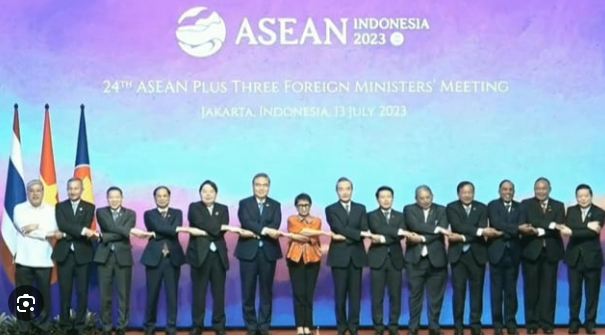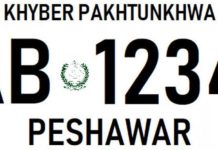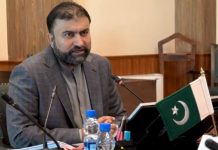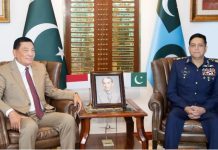Jakarta, July 14 (DNA): Top diplomats from the United States, China and Russia attend a security meeting on Friday with Southeast Asian foreign ministers, with the spotlight on the disputed South China Sea, the Ukraine war and North Korea’s missiles.
The 27-member ASEAN Regional Forum (ARF) will provide an arena for big powers to lock heads over a range of issues, and the closed-door roundtable has previously been a fractious affair.
Host Indonesia warned that Southeast Asian bloc ASEAN cannot become a proxy, as US-China tensions flare over self-ruled Taiwan, Beijing’s close ties with Moscow, and a tug-of-war for influence in the South Pacific.
US Secretary of State Antony Blinken, China’s top diplomat Wang Yi and Russian Foreign Minister Sergei Lavrov will attend the ARF, a body set up to discuss security issues that also includes Japan, South Korea and Australia.
“The Indo-Pacific must not be another battleground,” Indonesian Foreign Minister Retno Marsudi told ministers as she opened an earlier 18-nation East Asia Summit.
“Our region must remain stable, and we intend to keep it that way.”
In talks with Marsudi on Friday, Blinken said Jakarta and Washington share similar visions for a “free, open, secure, prosperous, connected, resilient” Asia-Pacific region.
“And the work that we’re doing together is to make that vision real.”
Friday’s meetings would be the first between Blinken and Lavrov since a brief March encounter in India, but no bilateral talks are expected as Russia’s widely condemned invasion of Ukraine grinds on.
Wang and Blinken, however, held their second meeting in as many months on Thursday as Washington and Beijing look to stabilise their relationship.
Blinken told Wang that Washington would hold hackers “accountable” after a breach of US government email accounts was blamed on Chinese state-backed actors, a US official said.
Wang urged Washington to “work with China in the same direction” to improve ties and stop interfering in China’s affairs, according to a statement on Friday by the foreign ministry in Beijing.Wang, replacing Foreign Minister Qin Gang who was unwell, also met with Lavrov on Thursday, and the pair pledged to deepen ties in areas of strategic communication and cooperation.
In an interview with Indonesian media this week, Lavrov said the war in Ukraine would not end until Western nations gave up their efforts to “defeat” Russia.
Before sitting around the table again Friday, Australian Foreign Minister Penny Wong raised human rights issues with Wang, and said it was crucial to speak frankly on the matter.
She told reporters Friday she had urged Beijing “for transparency about the nature” of a controversial policing pact with the Solomon Islands criticised by Western powers.
But she noted progress on a lingering trade dispute with Beijing, saying some Australian industries and exports had “much more access” to the Chinese market while calling for the removal of all trade “impedients”.
“We will continue to engage in dialogue, we will continue to work to navigate our differences wisely. I’ve said that we can grow our bilateral relationship, while safeguarding our national interest,” she said.
At the ASEAN Regional Forum, a North Korean official would be present but Pyongyang declined to send its foreign minister.
North Korea said Thursday that it had successfully tested a solid-fuel intercontinental ballistic missile. AFP/APP

















